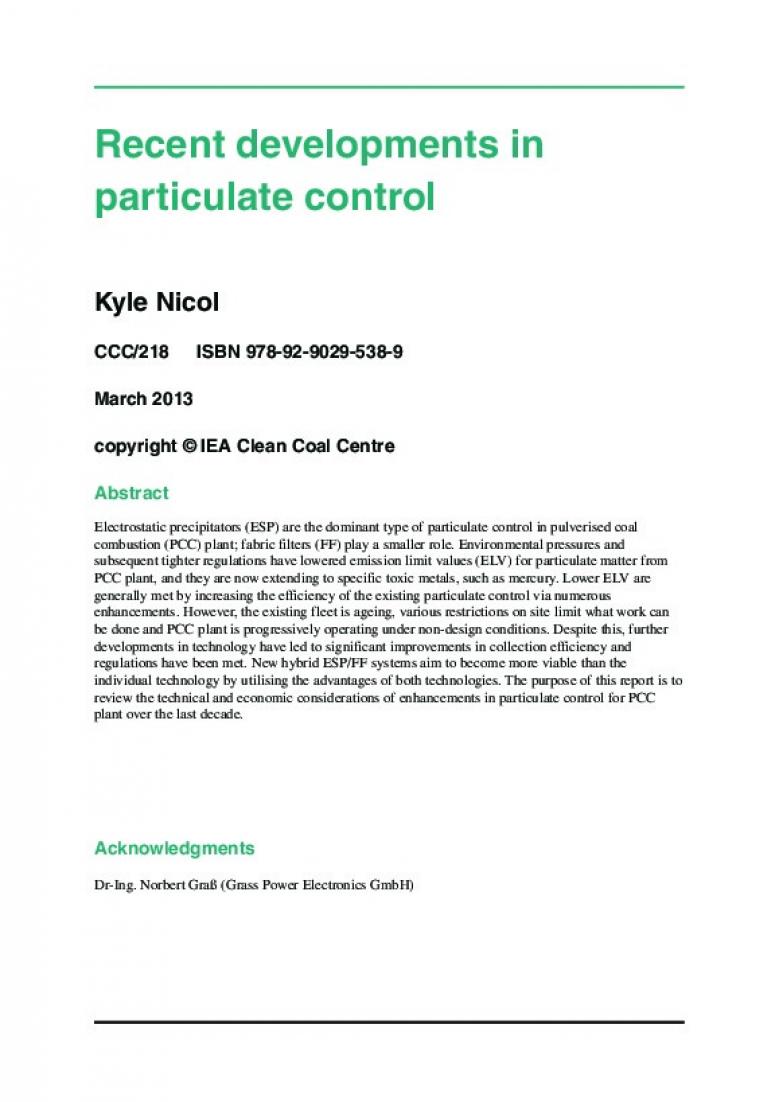CCC/218 ISBN 978-92-9029-538-9
March 2013
copyright © IEA Clean Coal Centre
Abstract
Electrostatic precipitators (ESP) are the dominant type of particulate control in pulverised coal
combustion (PCC) plant; fabric filters (FF) play a smaller role. Environmental pressures and
subsequent tighter regulations have lowered emission limit values (ELV) for particulate matter from
PCC plant, and they are now extending to specific toxic metals, such as mercury. Lower ELV are
generally met by increasing the efficiency of the existing particulate control via numerous
enhancements. However, the existing fleet is ageing, various restrictions on site limit what work can
be done and PCC plant is progressively operating under non-design conditions. Despite this, further
developments in technology have led to significant improvements in collection efficiency and
regulations have been met. New hybrid ESP/FF systems aim to become more viable than the
individual technology by utilising the advantages of both technologies. The purpose of this report is to
review the technical and economic considerations of enhancements in particulate control for PCC
plant over the last decade.
| Attachment | Size |
|---|---|
| 2.6 MB |


